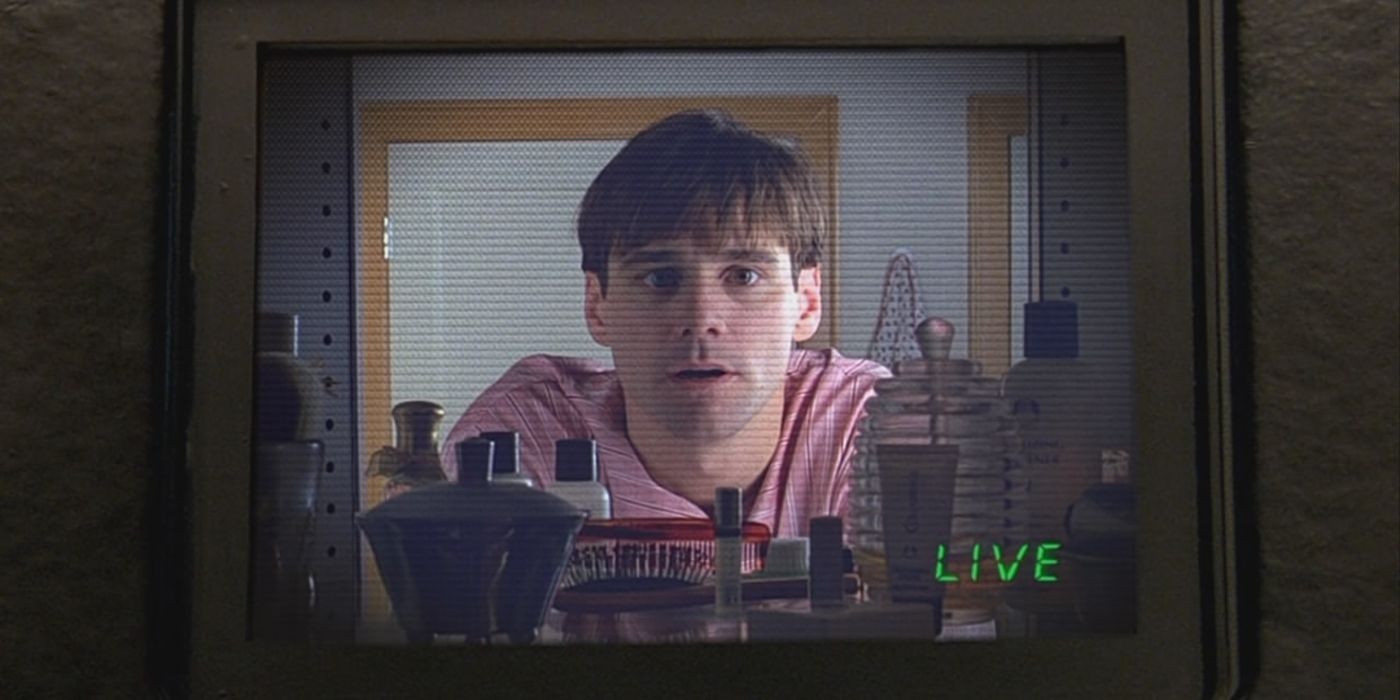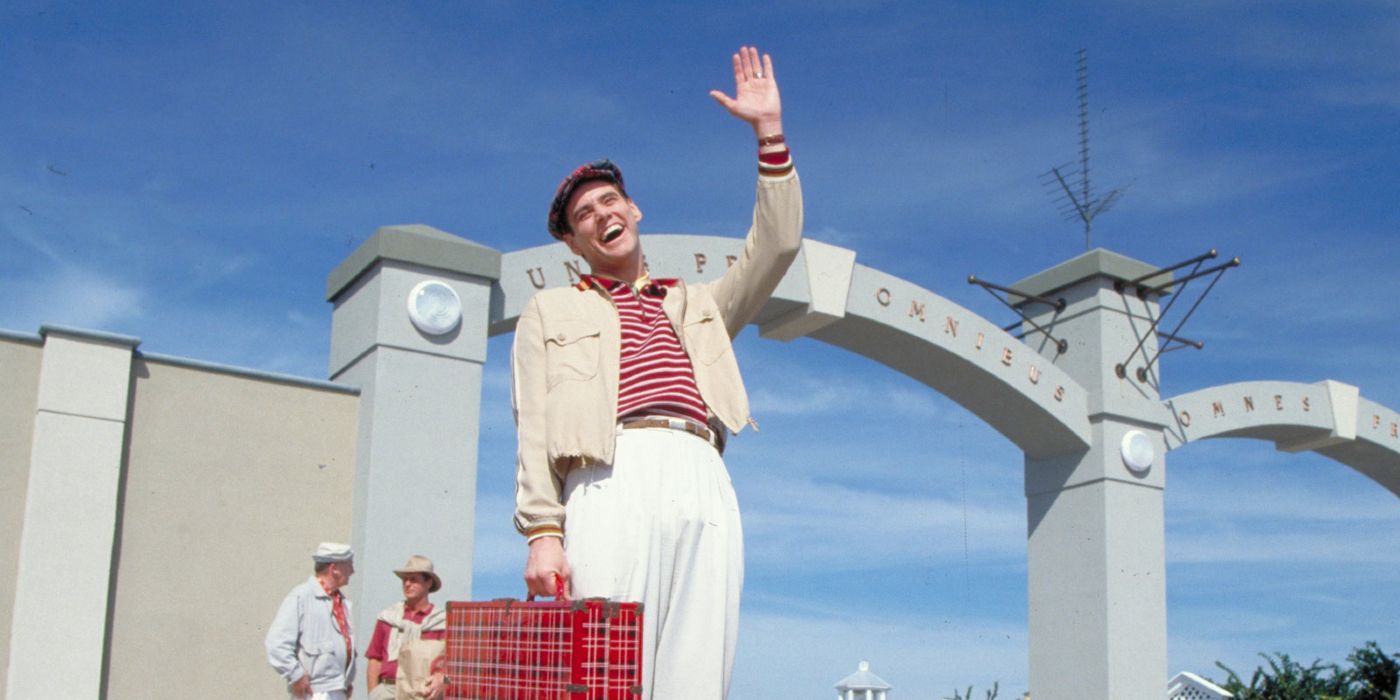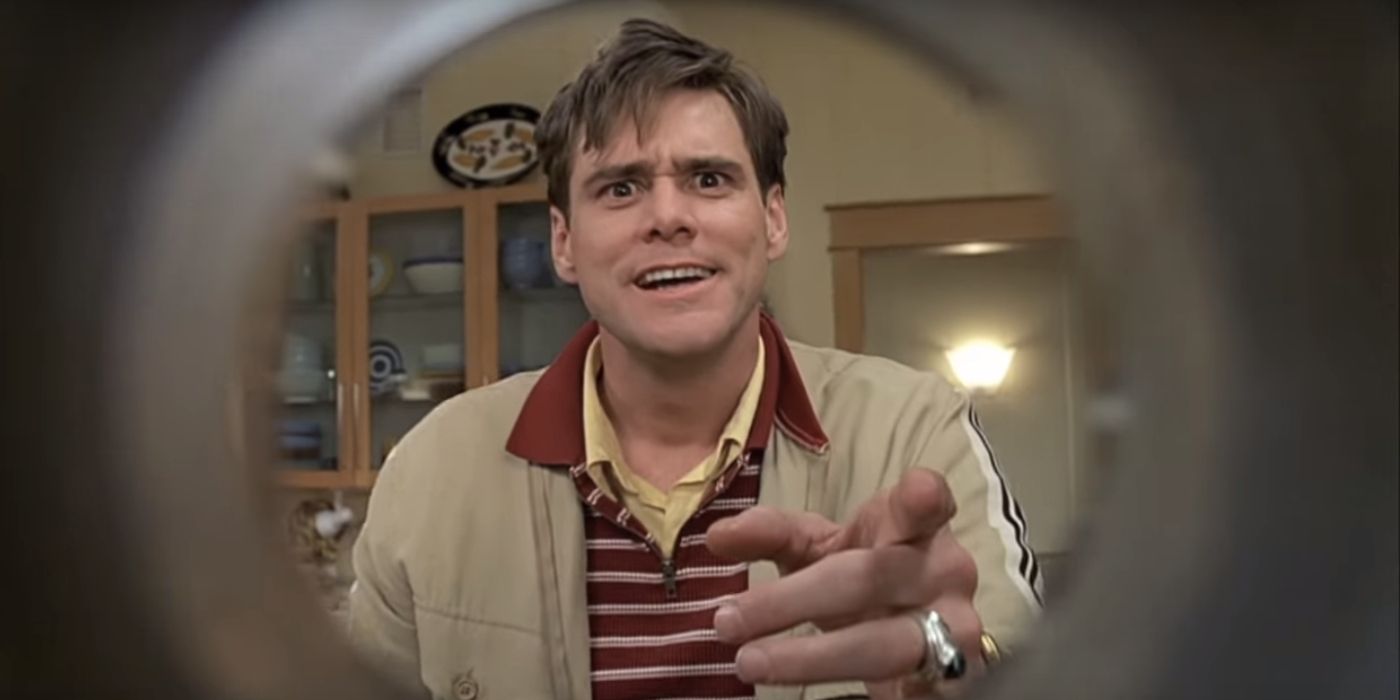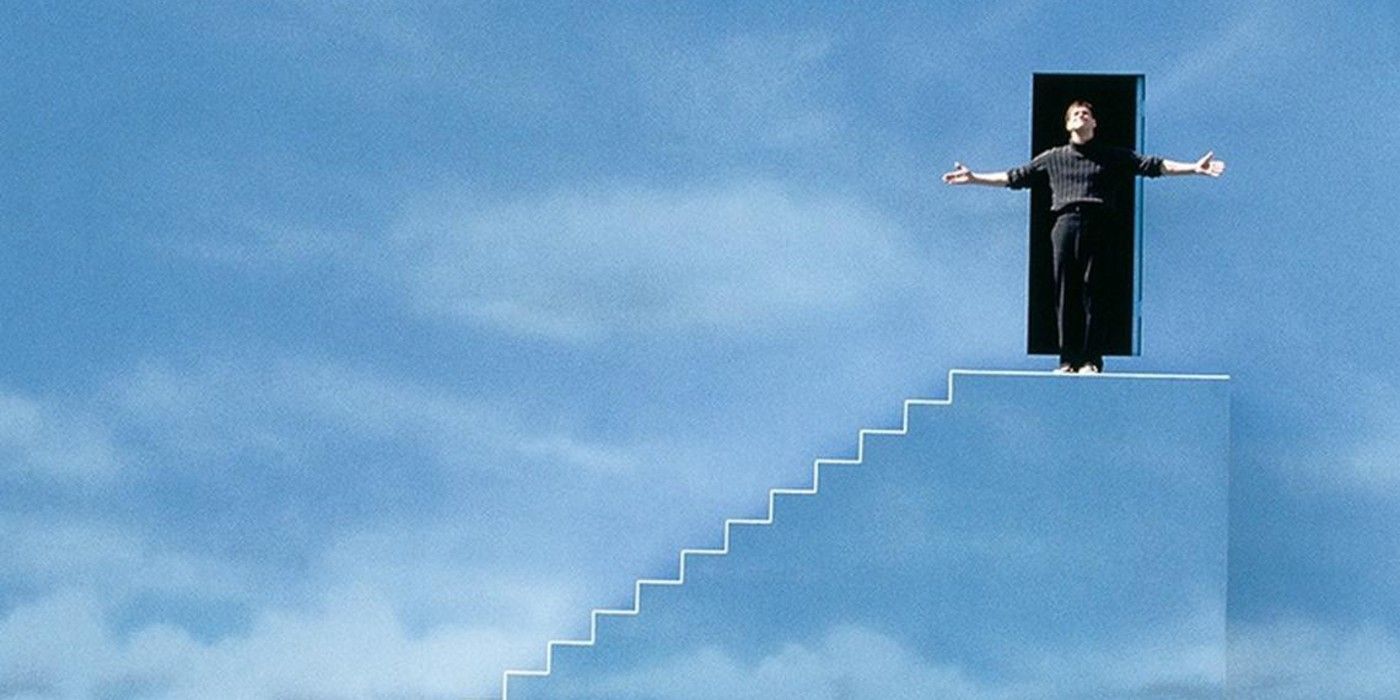Since its release in 1998, The Truman Show has had something of a quiet reckoning. Starring Jim Carrey with a career-best performance, the movie centers around Truman Burbank, an unassuming and pretty normal guy who (unbeknownst to him) is actually the star of a 24/7 reality show – the eponymous ‘Truman Show’. Fans from all around the world watch him at all times of the day as he goes about his run-of-the-mill life, totally unaware that he has no privacy, no agency, and seemingly no way of ever escaping.
Achieving modest success when it debuted, the film has since become a cult classic as fans everywhere wrangle with the existential nature of its premise. After watching the film, who hasn’t been struck by the sudden and compelling thought, “Wait… is my life a TV show? Is someone watching me right now?” Looking into a mirror will never be the same again.
RELATED: Mental Health Charity Auctioning Custom Nintendo Switch
As genius as The Truman Show’s premise is, the film itself shows that such an idea is unfeasible and unsustainable. Too many people would have to work too hard to keep it going, and viewers are far too fickle to make it worth the effort. Logically, there's no way The Truman Show could work in real life, but some unfortunate individuals can't understand that.
In 2012, Joel Gold and Ian Gold published a paper in the journal Cognitive Neuropsychiatry about a phenomenon that they dubbed the Truman Show Delusion (TSD). In the paper, which they titled ‘Psychosis in the Global Village’, they described the condition as “…a novel delusion, primarily persecutory in form, in which the patient believes that he is being filmed and that the films are being broadcast for the entertainment of others.” In other words, that they’re living a real-life Truman Show.
However, interestingly, the journal also notes that the cases diagnosed as having TSD actually achieve a ‘reverse’ of what happens in the film, in that they’re in-part triggered from watching The Truman Show – unlike Truman, they only begin believing that they’re being watched AFTER watching Truman go through the ‘same’ thing. Ironically, in the film, Truman overcomes his situation after attempting to understand it… the same can’t be said for his real-life counterparts.
Here are the five cases of the TSD mentioned in the paper:
Case 1 (‘Mr. A.’): Mr. A. was considered to be a textbook-example of TSD, holding the belief he was being watched for five years, without his family knowing. A center-point of Mr. A.’s delusion was that he believed the 9/11 attacks were fabricated just for him, and sought to travel to New York to see the Twin Towers still standing to disprove it. Mr. A.’s TSD was to such a degree that be thought he had cameras implanted in his eyes, and when he was finally admitted to the psychiatry institution he asked to speak to the ‘director’.
Case 2 (‘Mr. B.’): Like Mr. A., Mr. B.’s TSD developed after watching the 1998 film, and developed into him believing he had to travel to NYC to meet an unknown woman at the top of the Statue of Liberty. In his delusion, he believed she could free him from this national broadcast, much like how Truman’s love for the extra Sylvia eventually freed him from his broadcast.
Case 3 (‘Mr. C.’): Mr. C. was a journalist and he believed that stories (in newspapers, online, and on television) were created by his colleagues in the media for his personal amusement. In other words, he thought he was being drip-fed ‘fake news’ as part of some kind of TV show.
Case 4 (‘Mr. D.’): Ironically, Mr. D. actually worked on a reality television show himself, but came to believe that it was his own life that was actually being broadcast. He also believed that his family were paying for a film crew that were actually controlling his thoughts
Case 5 (‘Mr. E.’): Mr. E. believed that the Secret Service was following him, had replaced everyone around him with paid actors, and were feeding him fake news over the TV and radio. Strangely, though, Mr. E. said he enjoyed the “attention”, but believed the scheme would randomly end on Christmas Day.
Between studying these five cases and work done by other psychologists, Gold and Gold sought to answer the questions “what does TSD contribute to the understanding of the role of culture in psychosis” – in other words how does reality television exacerbate psychosis and other mental illnesses?
Obviously, it’s not as simple as saying that reality television directly causes delusional episodes, but to what extent do they aggravate underlying conditions? In their paper, Gold and Gold noted that in each of the five cases, those studied already exhibited signs of mental illness, but that watching The Truman Show managed to worsen them. With so many television shows toeing the line between reality and fiction, or even being predicated on the idea of watching people without them knowing (pretty much any special Derren Brown puts out), it’s plain to see why Gold and Gold could come to this conclusion.
Nevertheless, like all modern psychological studies, more research needs to be done before anyone conclusively state that films The Truman Show wreck people’s minds.




